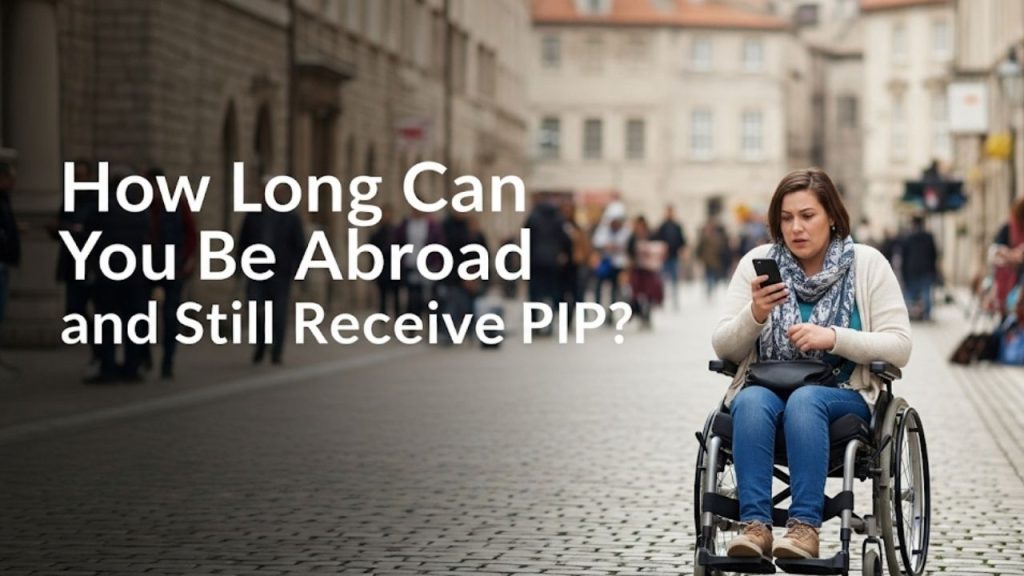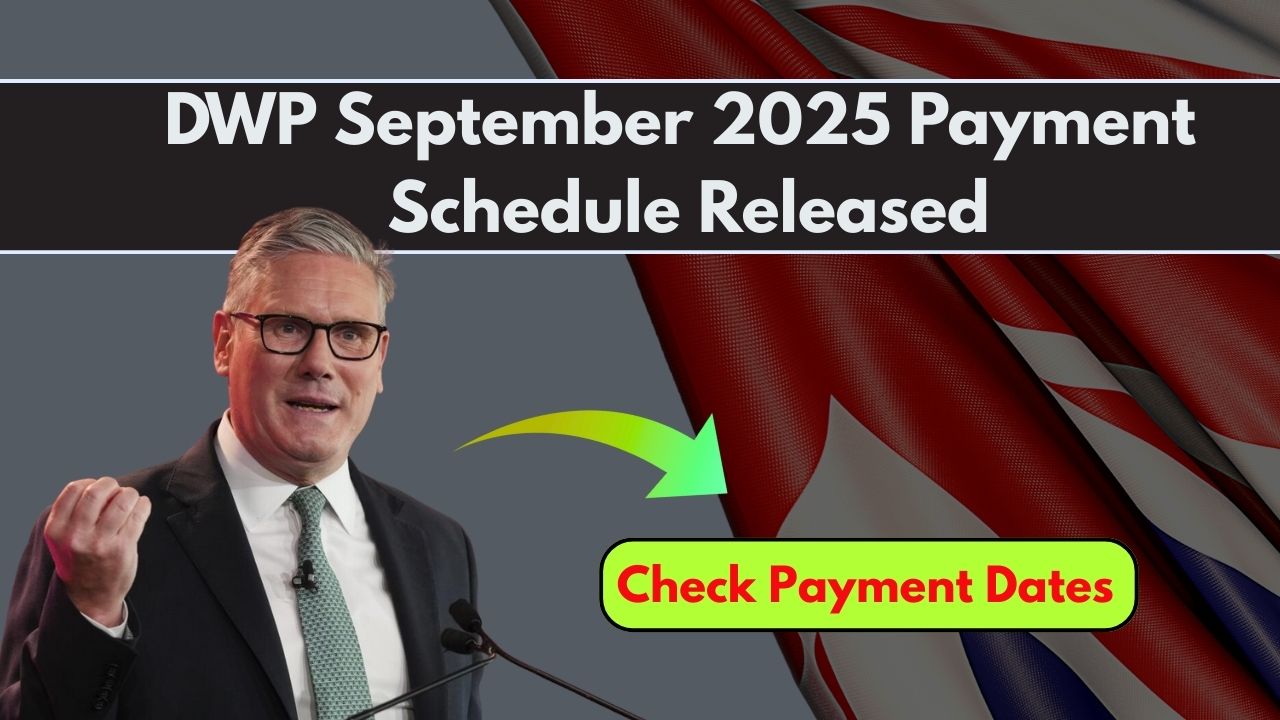If you are receiving Personal Independence Payment (PIP) and planning a summer trip abroad in 2025, it’s essential to understand how the Department for Work and Pensions (DWP) travel rules can impact your benefits. Leaving the UK for more than four weeks without notifying the DWP may result in your PIP payments being suspended or stopped, which could cause serious financial difficulties during your trip or afterward.

PIP is designed to help people with long-term health conditions or disabilities manage extra costs related to daily living and mobility. While PIP is not means-tested—meaning your income or savings don’t affect eligibility—there are strict requirements about your presence in the UK, particularly concerning travel abroad. This article breaks down these rules, offers practical advice, shares clear examples, and points you toward official resources, helping both claimants and professionals fully understand how to protect PIP payments when traveling.
DWP Might Cancel Your PIP Payments
| Topic | Details |
|---|---|
| Maximum time abroad without affecting PIP | Up to 4 weeks (28 consecutive days) |
| Travel longer than 4 weeks | Must notify DWP in advance to avoid payment suspension or termination |
| Required information to report | Departure date, length of trip, destination, and reason for travel |
| Exceptions for medical treatment abroad | Up to 13 weeks, possibly 26 weeks in limited NHS-funded cases |
| How to notify DWP | Call the PIP enquiry line at 0800 121 4433 (Mon-Fri, 9am–5pm) |
| Consequences of not reporting | Payment suspension, repayment demands, fines, or legal action |
| Official resource | DWP Personal Independence Payment (PIP) official page |
Going on a summer trip while receiving Personal Independence Payment is absolutely possible and can be enjoyable as long as you adhere to the rules. The four-week rule is fundamental: trips abroad exceeding four weeks must be reported to the DWP to avoid payment suspension or loss. Always notify the DWP early, provide complete travel details, and report any relevant changes during your time away. Being proactive protects your financial support and lets you enjoy your holiday with greater peace of mind.
What Is Personal Independence Payment (PIP)?
Personal Independence Payment (PIP) is a UK government benefit that assists individuals with long-term physical or mental health conditions by helping cover the additional costs they may face due to their disability or illness. Unlike income-related benefits, PIP eligibility is based on an assessment of your care and mobility needs rather than your income or savings.
PIP payments consist of two separate components:
- Daily Living Component: Supports help with everyday activities such as dressing, cooking, or managing medication.
- Mobility Component: Aids individuals who have difficulty moving around or need guidance when outdoors.
By offering these payments, PIP supports many people in maintaining independence and quality of life.
Why Does Traveling Abroad Affect PIP?
PIP is intended for people living and receiving care within the United Kingdom. If you leave the country for extended periods, the Department for Work and Pensions may review your entitlement. According to official DWP guidelines, being abroad for more than four consecutive weeks can trigger a review or suspension of your payments unless you have notified and received approval from the DWP.
This travel policy helps ensure that public funds are directed appropriately toward those who are currently living in the UK and require ongoing care or mobility support here.
How Long Can You Be Abroad and Still Receive PIP?
- Up to 4 weeks (28 consecutive days): You can continue to receive PIP without interruption. While not legally required, it’s best practice to inform the DWP about any travel.
- More than 4 weeks: If you plan to be abroad for longer than four weeks, you must notify the DWP beforehand. Failure to do so may result in suspension or termination of your payments.
- Travel for medical treatment: If you are overseas for NHS-funded medical treatment, your allowable time abroad may extend to up to 13 weeks, or 26 weeks in exceptional cases where treatment is continuous or complex.

How to Notify the DWP About Your Travel
To keep your payments safe, notify the DWP as soon as you know your trip will exceed four weeks. When contacting them, ensure you provide the following details:
- The planned date of your departure from the UK.
- The expected duration of your stay abroad.
- The country or countries you will be visiting.
- The purpose of your trip (for example, holiday, medical treatment, visiting family).
You can notify the DWP by calling the PIP enquiry line at 0800 121 4433, available Monday to Friday, 9 am to 5 pm. Providing accurate information upfront helps the DWP handle your case smoothly and avoids misunderstandings or administrative delays.
What Happens If You Don’t Inform the DWP?
Failing to report your extended travel can have serious consequences, including:
- Suspension or termination of your PIP payments.
- Requests to repay any overpaid benefits.
- Possible investigation for benefit fraud, even if your failure to notify was unintentional.
- Civil penalties—including fines up to £5,000 for deliberately failing to report a change.
It’s critical to notify the DWP to avoid putting your financial support at risk. Even if your trip exceeds the four-week limit by just one or two days, this counts as breaching the rules.
Other Changes That May Affect Your PIP
Besides travel, other important life changes can affect your PIP eligibility or payment amounts. You should also report the following changes promptly:
- Hospital stays longer than 28 days, which can suspend both Daily Living and Mobility components.
- Stays in a publicly funded care home lasting over 28 days.
- Periods of legal custody or imprisonment (typically over 28 days).
- Significant improvements or deteriorations in your health condition, since changes can alter your assessed support needs.
Reporting these changes keeps your claim accurate, helps avoid overpayments, and ensures your payments reflect your current circumstances.
Changes That Don’t Affect PIP But Should Be Reported
Certain updates don’t usually change your PIP entitlement but it’s good to inform the DWP to keep your records up to date and avoid payment issues:
- Changes in address, name, or bank details.
- Changing your appointed appointee or power of attorney.
- Changing your GP or healthcare provider during claim applications or assessment reviews.
Keeping this information current helps prevent avoidable delays or errors in receiving your payments.
Practical Tips for PIP Claimants Planning Summer Travel
- Plan early: If your trip might last more than four weeks, call the DWP well before you travel.
- Keep documentation: Save travel confirmations, itineraries, and any medical letters if traveling for treatment.
- Stay in touch: If your plans change while abroad, inform the DWP promptly.
- Report upon return: Let the DWP know when you come back to the UK to ensure payments resume quickly.
- Seek advice: If in doubt, contact organisations like Citizens Advice or Scope for guidance on handling your claim.
Clear Example Scenario
Sarah receives PIP due to mobility needs and plans a holiday to Spain lasting three weeks. Since her trip is under four weeks, she does not have to notify the DWP but chooses to call just to keep them informed as a precaution.
John, also a PIP claimant, plans to visit family in Canada for six weeks. Before traveling, he calls the DWP PIP enquiry line, shares his travel details, and confirms that his health needs remain stable. His payments are paused for the duration but restart promptly upon his return.
FAQs About DWP Might Cancel Your PIP Payments
Q1: Will my PIP stop if I travel abroad for less than 4 weeks?
No. Traveling abroad for less than four weeks usually does not affect your PIP, though notifying the DWP is recommended.
Q2: How do I notify the DWP about my travel plans?
Call the PIP enquiry line at 0800 121 4433 and provide your departure date, trip duration, location, and reason for traveling.
Q3: Can I receive PIP if I travel abroad for medical treatment?
Yes. You may stay abroad for up to 13 weeks, or in some cases 26 weeks, if the trip involves NHS-funded treatment.
Q4: What happens if I forget to report my travel and go abroad for over four weeks?
Your PIP payments may be suspended or stopped, you might need to repay any overpayments, and you could face legal consequences.
Q5: Are there other changes besides travel that affect my PIP?
Yes. Long hospital stays, care home residence, imprisonment, and significant health changes may all impact your eligibility or payment amount.





